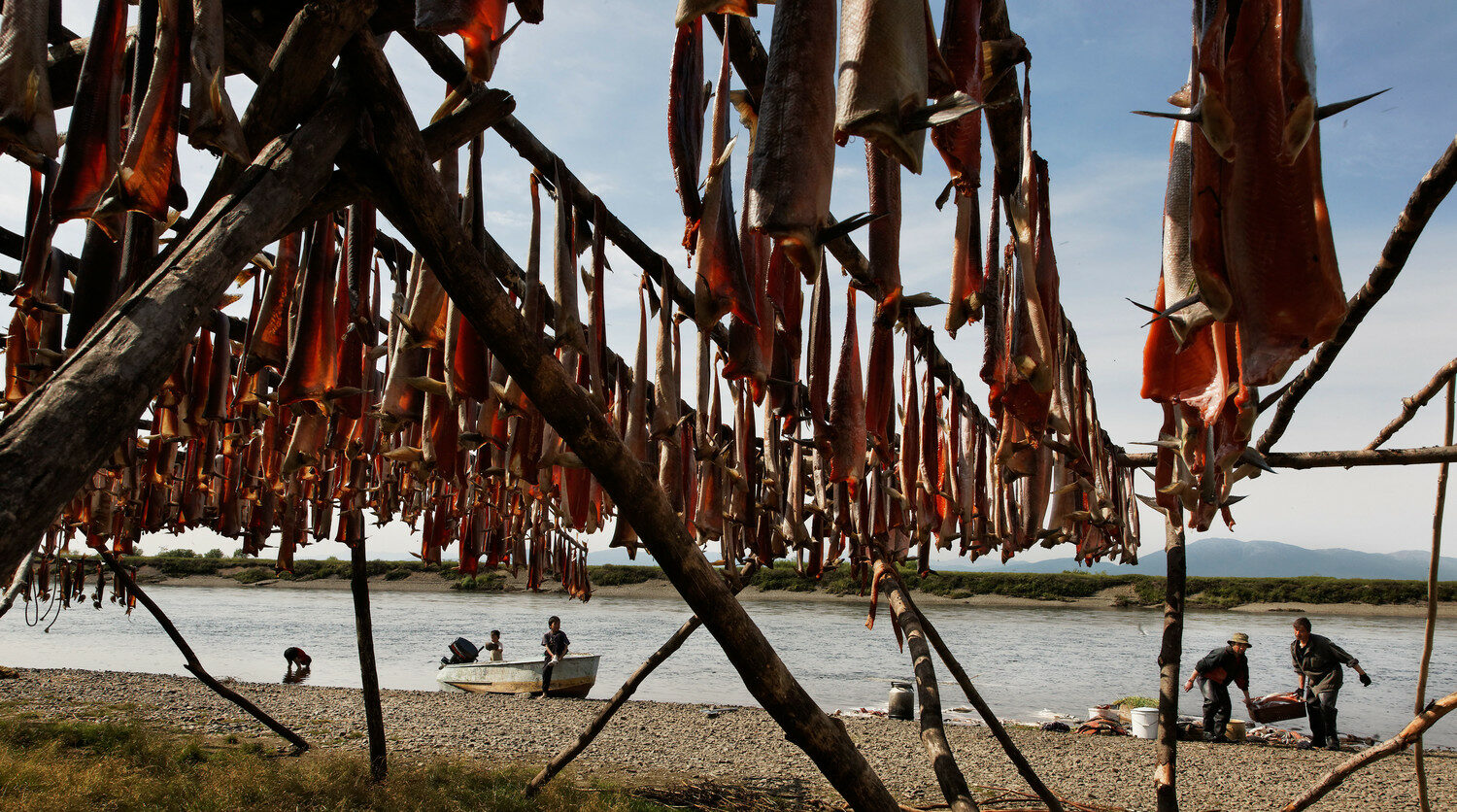The Kamchatka-born specialist in Indigenous knowledge systems on how she hopes to help her salmon community from the heart of America.
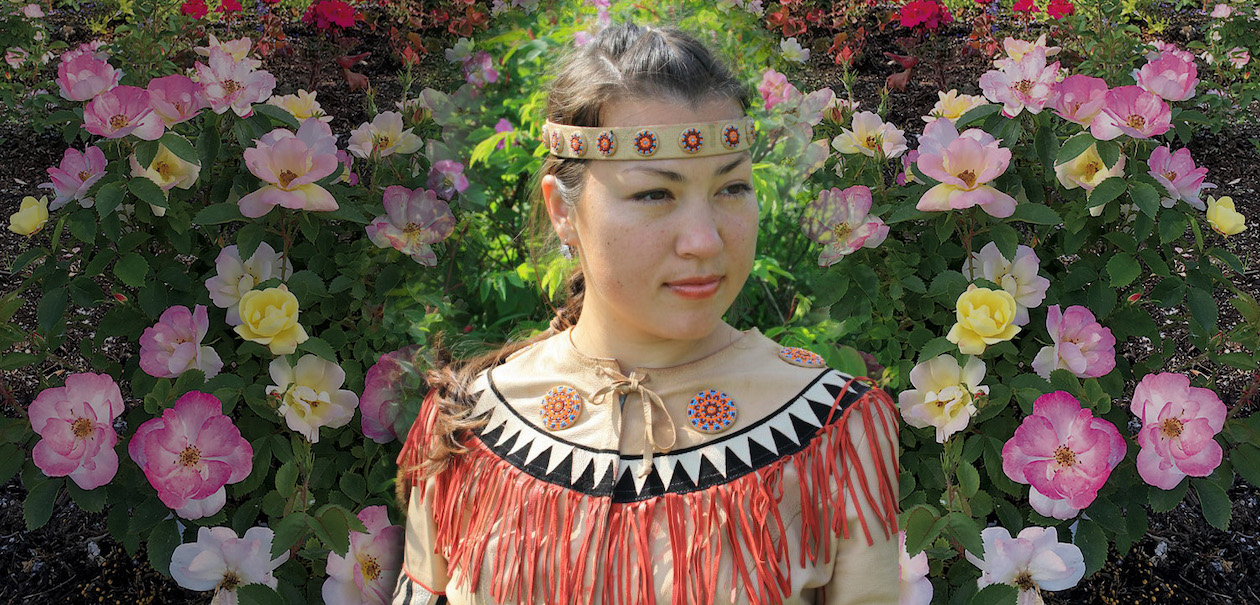
Growing up in Petropavlovsk-Kamchatski, Tatiana Degai had salmon for breakfast, lunch, and dinner. Too much salmon, she thought. It took a move across the ocean—to college and graduate school in the U.S.—to really miss it. To feel, not just know, that salmon is in her DNA.
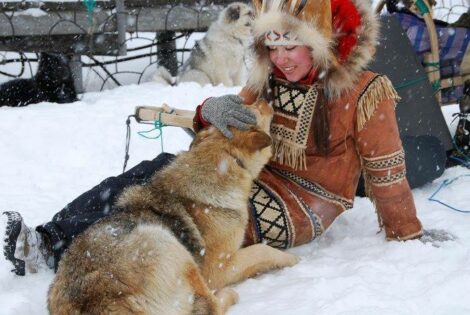
Dr. Degai belongs to the Itelmen community of Kamchatka, the “first people of Kamchatka-land,” she says, with deep connections to a fishing way of life. Her grandmother, an ethnographer, introduced her to these traditions. And her mother, a fisherwoman, taught her to advocate for Indigenous fishing rights.
For a community spread across the tundra, being heard by Moscow can be difficult. But Dr. Degai, currently a Postdoctoral Scholar at the ARCTICenter at the University of Northern Iowa, carries academic clout. Now, as a new member of the Wild Salmon Center board of directors, she hopes to leverage her expertise in Indigenous knowledge systems and visions of sustainability to help WSC salmon conservation campaigns across the North Pacific.
“WSC is working with salmon communities in Bristol Bay, in British Columbia, in Oregon. There is a huge repository of Indigenous knowledge in these communities that we can learn from [back home],” she says. “We need to bring these knowledge systems into the conversations in Russia.”
There is a huge repository of Indigenous knowledge in these communities that we can learn from. We need to bring these knowledge systems into the conversations in Russia.
Below, Dr. Degai shares more about her community’s salmon way of life, how she can help from Cedar Falls, Iowa, and reconnecting—through board games!—with her home waters in Kamchatka.
Dr. Tatiana Degai, in her own words:
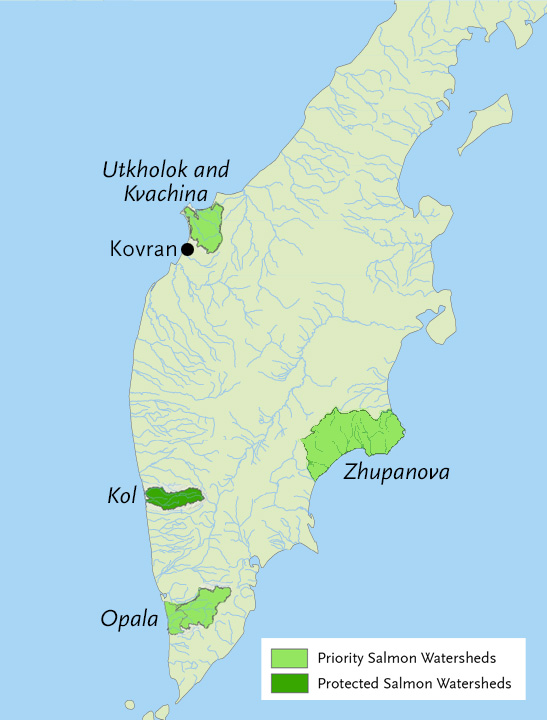
According to our creation stories, the Kamchatka Peninsula is made of a huge salmon. If you look at a map you will see the resemblance. Itelmen people are traditional fishermen who subsist on smelt and salmon. It is the foundation of our life.
My mother grew up in the urban part of Kamchatka, like me. And she too has this need to have salmon. She’s been a fisherwoman for many years, standing up for the rights of Indigenous people to fish for salmon. Because some people think that if you grow up in an urban area, you don’t need subsistence food, you don’t have this right. But I see this as a genetic need, to have the food that your ancestors lived with for many centuries.
When the Russians came to Kamchatka, this land was all covered with Itelmen. The village of Kovran is the center of Itelmen life, it has maybe 250 people. My grandmother would bring me along when she did field work in remote areas, like Kovran. It’s the only place left where Itelmen are the majority.
I see this as a genetic need, to have the food that your ancestors lived with for many centuries.
In the 1990s, when the Soviet Union fell, the whole socioeconomic system fell, and severe poaching started here. [Beginning in the mid-1990s] Wild Salmon Center became active in Kamchatka. I was always wondering why we never came across each other in our work. In 2007, I started working with youth to bring Indigenous knowledge back to salmon. This included salmon youth camps, salmon festivals, educational materials for children. We published several children’s activity books, and supported ethno-ecological clubs in the region.
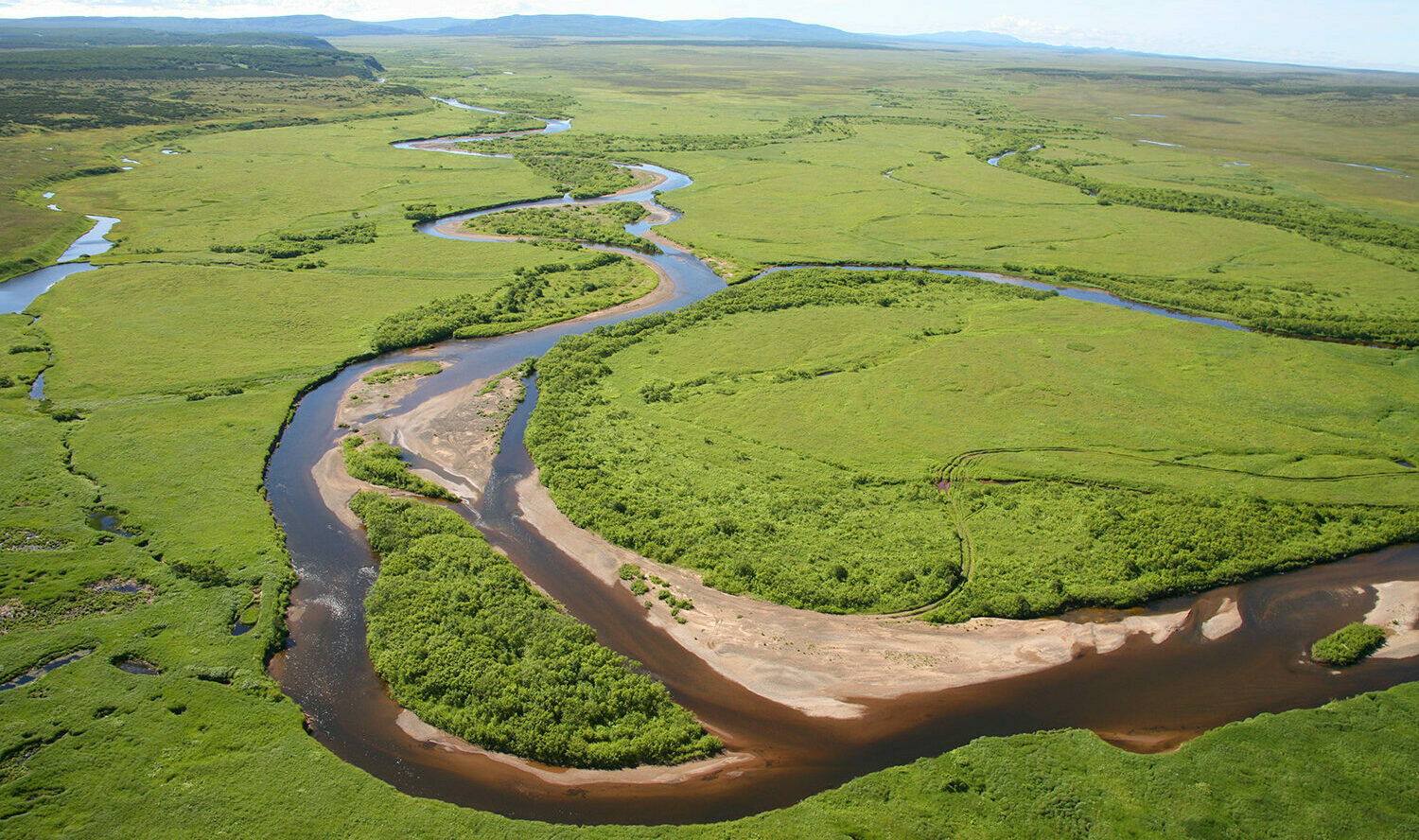
Now my work is centered around bringing Indigenous knowledge into academia and vice versa. My research focuses on how Indigenous communities like mine adapt to current social and environmental situations, and how salmon practices relate to that as well. I also work on language revitalization.
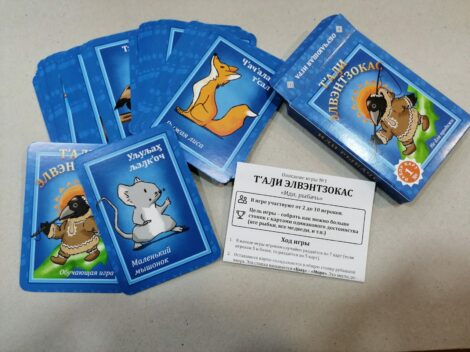
Last year we published a card game in Itelmen language inspired by “Go Fish,” which my kids were playing. Right now we are developing a board game based on “Floor is Lava.” We have many beautiful creation stories based on volcanoes, so when my children showed me this game, I thought, oh, we can Kamchatkanize this.
I was surprised by the invitation to join WSC’s board of directors. And happy, because I think it’s a good direction. My impression is that these days WSC is working more closely with Indigenous communities. There is such a huge repository of knowledge in these communities. [WSC President] Guido Rahr introduced me to WSC with a wonderful presentation on salmon, and that’s the type of exchange that we need—between clear science on salmon and Indigenous knowledge.
I’ll be happy if being part of WSC helps support community initiatives in Kamchatka. I’d love for communities in Russia to see that Indigenous knowledge is treated as a viable source of information elsewhere.

In Russia, we have so-called obshchinas, there’s no good translation in English. [Editor’s Note, roughly, a designation of legal status for an Indigenous community.] Many people apply to get salmon quotas for land or territory to fish. Indigenous individuals have the right to fish as well, but it’s very complicated. We all have to prove that we are Indigenous people in court. What we hear on the ground is that this system is way too bureaucratized. It requires access to high-speed internet, notaries of public, reliable postal service, and we all know about the problems in these remote communities. Where for the government it is all so clear, out in the tundra is it very complicated and feels unnecessary.
That worries me the most, this huge gap of understanding between policymakers and the Itelmen. As an academic, I try to bring in Indigenous vision. And politicians tend to listen to academics.
I’ll be happy if being part of Wild Salmon Center helps support community initiatives in Kamchatka. I’d love for communities in Russia to see that Indigenous knowledge is treated as a viable source of information elsewhere.
